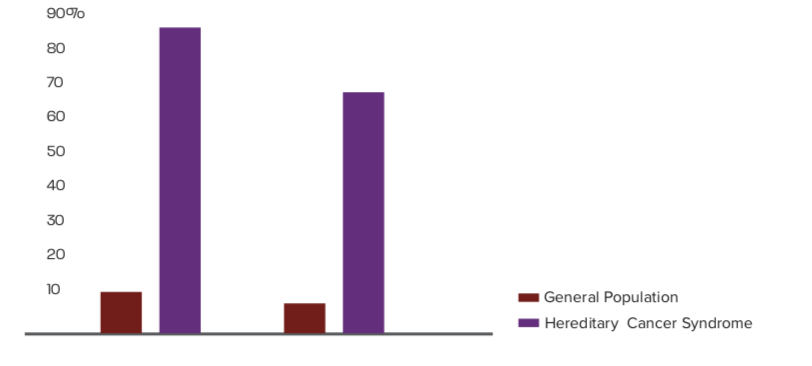A Simple Screening Can Make a World of Difference
Genetics testing involves analyzing an individual’s DNA to identify genetic variations that may predispose them to certain diseases or affect their response to medications. This advanced form of testing provides critical insights into hereditary health risks and helps guide personalized treatment plans. By examining specific genes and mutations, our laboratory can offer precise diagnostics and risk assessments, empowering patients and healthcare providers with valuable information for proactive health management.
Genetic Screening for Cancer and Hereditary Diseases
Routine screenings and early detection are among the most effective weapons in fighting cancer hereditary diseases. Our genetic screening services are designed to identify mutations and genetic markers associated with various cancers and hereditary diseases. By detecting these genetic alterations early, we can help patients and healthcare providers take preventive measures and make informed decisions about treatment options. Our genetic screening services include:
Hereditary Cancer Screening: We analyze genes known to be associated with an increased risk of cancers, such as BRCA1 and BRCA2 for breast and ovarian cancer, and other genes linked to colorectal, prostate, and pancreatic cancers.
Screening for Hereditary Diseases: Our comprehensive genetic panels screen for a wide range of hereditary conditions, including cardiovascular diseases, neurological disorders, and metabolic syndromes.
Pharmacogenomic Testing
Pharmacogenomic testing examines how an individual’s genetic makeup affects their response to medications. This type of testing helps optimize drug therapy by identifying the most effective medications and dosages based on a patient’s genetic profile. Our pharmacogenomics services include:
Medication Response Testing: We analyze specific genes that influence drug metabolism, efficacy, and risk of adverse reactions. This information allows healthcare providers to tailor prescriptions to each patient, improving treatment outcomes and reducing the likelihood of side effects.
Comprehensive Drug Panels: Our pharmacogenomic panels cover a wide range of medications, including those used to treat cardiovascular diseases, psychiatric conditions, cancer, and pain management. By providing detailed insights into how patients process these drugs, we support personalized medicine approaches.
The sooner that genetic testing for inherited cancer predisposition syndromes is performed, the more likely the patient’s increased risk can be managed effectively.
Effective management is based on professional practice guidelines that are published specifically for patient who have a harmful inherited mutation that increases one’s life time risk of developing cancer. These protocols may include increased use of routine screening (mammograms or colonoscopies) and, depending on the severity of the mutation, may include aggressive options such as prophylactic surgical intervention.
Examples of Common Hereditary Cancer Syndromes:
- Breast Cancer
- Ovarian Cancer
- Endometrial Cancer
- Lynch Syndrome
- Cowden Syndrome
- Li-Fraumeni Syndrome
- and many others

Comprehensive Hereditary Cancer Risk Assessment
“A Simple Screening Can Make A World of Difference”

